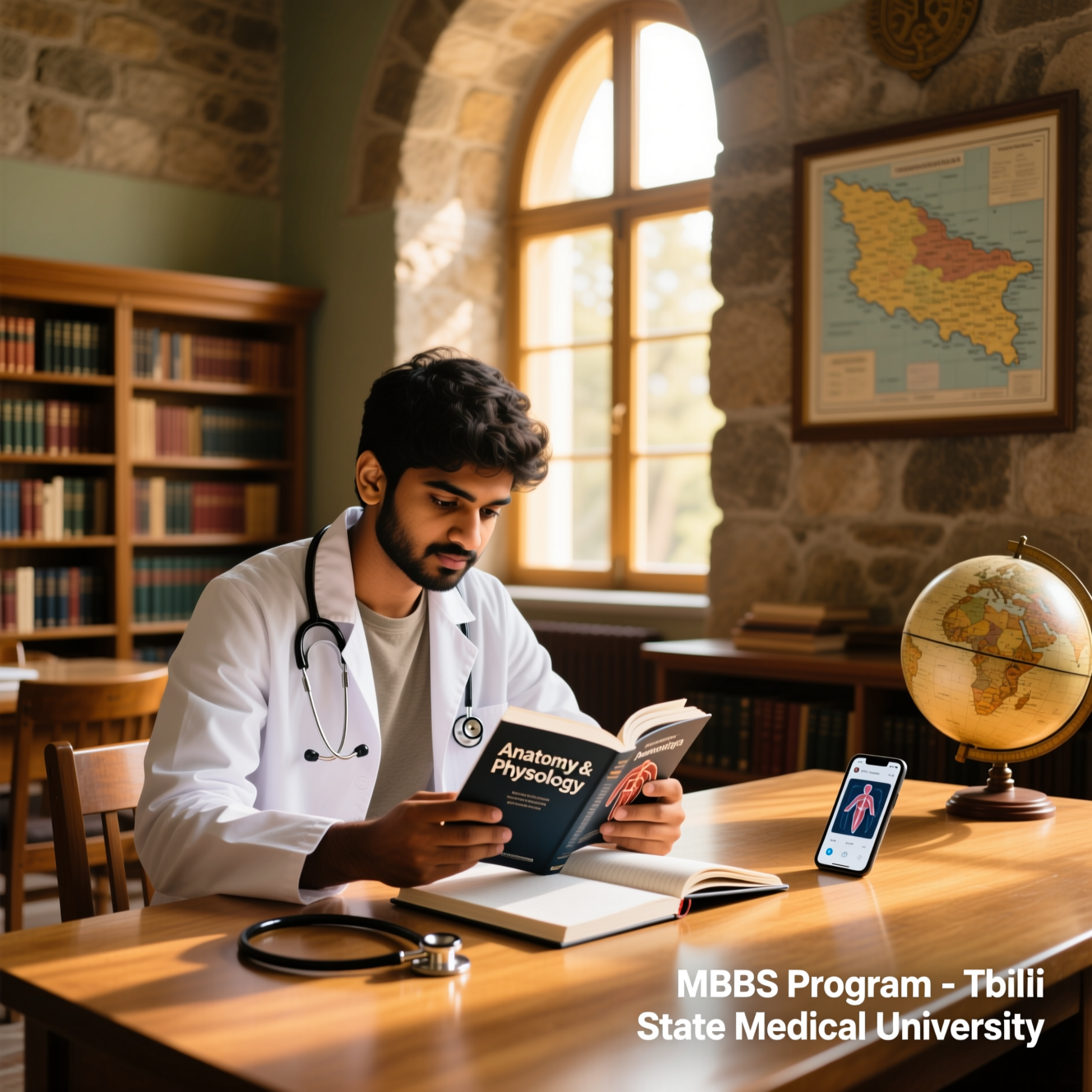MBBS Admission in Georgia: Your Gateway to Quality Medical Education Abroad

For students dreaming of becoming doctors but facing stiff competition or financial constraints in their home countries, pursuing an MBBS (Bachelor of Medicine, Bachelor of Surgery) in Georgia has emerged as a compelling alternative. Nestled at the crossroads of Europe and Asia, Georgia — the country, not the U.S. state — offers a unique blend of quality medical education, affordability, and global recognition. In this blog, we’ll explore why studying MBBS in Georgia is gaining popularity among international students, especially from India, Pakistan, Bangladesh, Nigeria, and other developing nations.
1. Globally Recognized Medical Universities
Georgia boasts several medical universities that are recognized by major global bodies such as the World Health Organization (WHO), the Medical Council of India (MCI — now NMC), the Educational Commission for Foreign Medical Graduates (ECFMG), and listed in the World Directory of Medical Schools (WDOMS). Institutions like Tbilisi State Medical University, David Tvildiani Medical University, and Batumi Shota Rustaveli State University offer MBBS programs taught entirely in English, making them accessible to international students.
These universities follow curricula aligned with European and international standards, ensuring graduates are well-prepared for licensing exams like the USMLE (United States Medical Licensing Examination), PLAB (Professional and Linguistic Assessments Board in the UK), and NEXT (National Exit Test in India).
2. Affordable Tuition and Living Costs
One of the biggest advantages of studying MBBS in Georgia is affordability. Compared to Western countries or even private medical colleges in India, tuition fees in Georgia are significantly lower — typically ranging between $4,000 to $8,000 per year. When you factor in living expenses — including accommodation, food, and transportation — the total annual cost rarely exceeds $10,000.
Hostel facilities are economical and often located within or near campus. Local food is delicious, fresh, and inexpensive. Public transportation is efficient and cheap. This makes Georgia one of the most budget-friendly destinations for medical education without compromising on quality.
3. No Entrance Exams or Donations
Unlike in many countries where medical admissions are determined by high-stakes entrance exams or opaque donation systems, Georgian medical universities admit students based on their 12th-grade (or equivalent) academic performance — particularly in Physics, Chemistry, and Biology. There are no capitation fees or hidden donations, making the admission process transparent and merit-based.
This is especially beneficial for students who may have missed out on domestic seats due to intense competition or financial barriers.
4. English-Medium Instruction & Multicultural Environment
All MBBS programs for international students in Georgia are conducted in English. This eliminates the need to learn a new language before starting medical studies — a significant advantage over countries like Russia, China, or Ukraine, where language barriers can be a hurdle in the initial years.
Moreover, Georgia is a multicultural hub with students from over 50 countries. This diverse environment fosters global friendships, cultural exchange, and prepares future doctors to work in international settings.
5. Safe, Beautiful, and Student-Friendly Country
Georgia is known for its warm hospitality, low crime rates, and stunning landscapes — from the Caucasus Mountains to the Black Sea coast. Cities like Tbilisi and Batumi offer a vibrant student life with cafes, historical sites, hiking trails, and modern amenities. The country is politically stable and welcoming to foreigners.
International students report feeling safe and supported, with universities offering dedicated international offices, orientation programs, and assistance with visas and accommodation.
6. Clinical Exposure and Modern Infrastructure
Georgian medical universities are equipped with modern laboratories, simulation centers, and affiliated teaching hospitals. Students begin clinical rotations from the third year onwards, gaining hands-on experience under the supervision of experienced practitioners. The patient inflow in hospitals is substantial, ensuring students get ample exposure to real-life medical cases.
7. Easy Licensing Pathways
Graduates from Georgian medical universities have a strong track record of clearing international licensing exams. The curriculum is designed to meet global standards, and many universities offer preparatory courses for USMLE, PLAB, and other exams. Alumni are successfully practicing in the USA, UK, Canada, Australia, India, and the Middle East.
8. Simple Visa Process
Georgia offers straightforward visa procedures for international students. Once admitted, students can obtain a long-term study visa with relative ease. The country also allows part-time work during studies (up to 20 hours per week), helping students manage expenses.
Final Thoughts
Pursuing MBBS in Georgia is not just a backup plan — it’s a strategic, cost-effective, and high-quality pathway to becoming a globally competent doctor. With internationally accredited degrees, English-medium instruction, affordable fees, and a safe, welcoming environment, Georgia stands out as a top destination for medical aspirants.
If you’re considering studying medicine abroad, don’t overlook Georgia. It might just be the perfect launchpad for your medical career — combining academic excellence with unforgettable cultural experiences.








